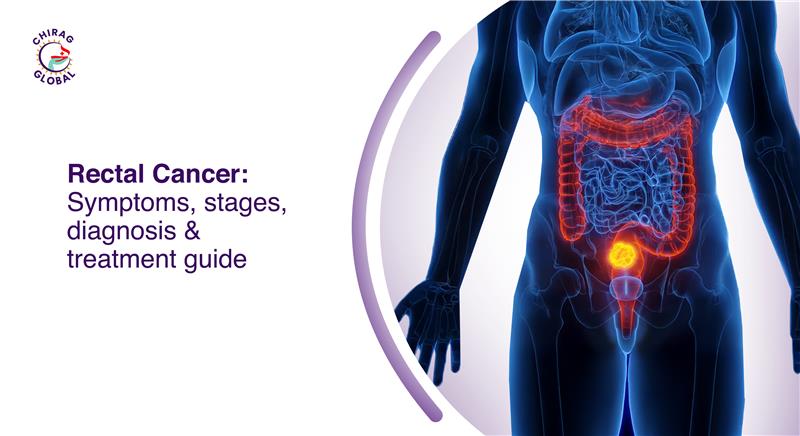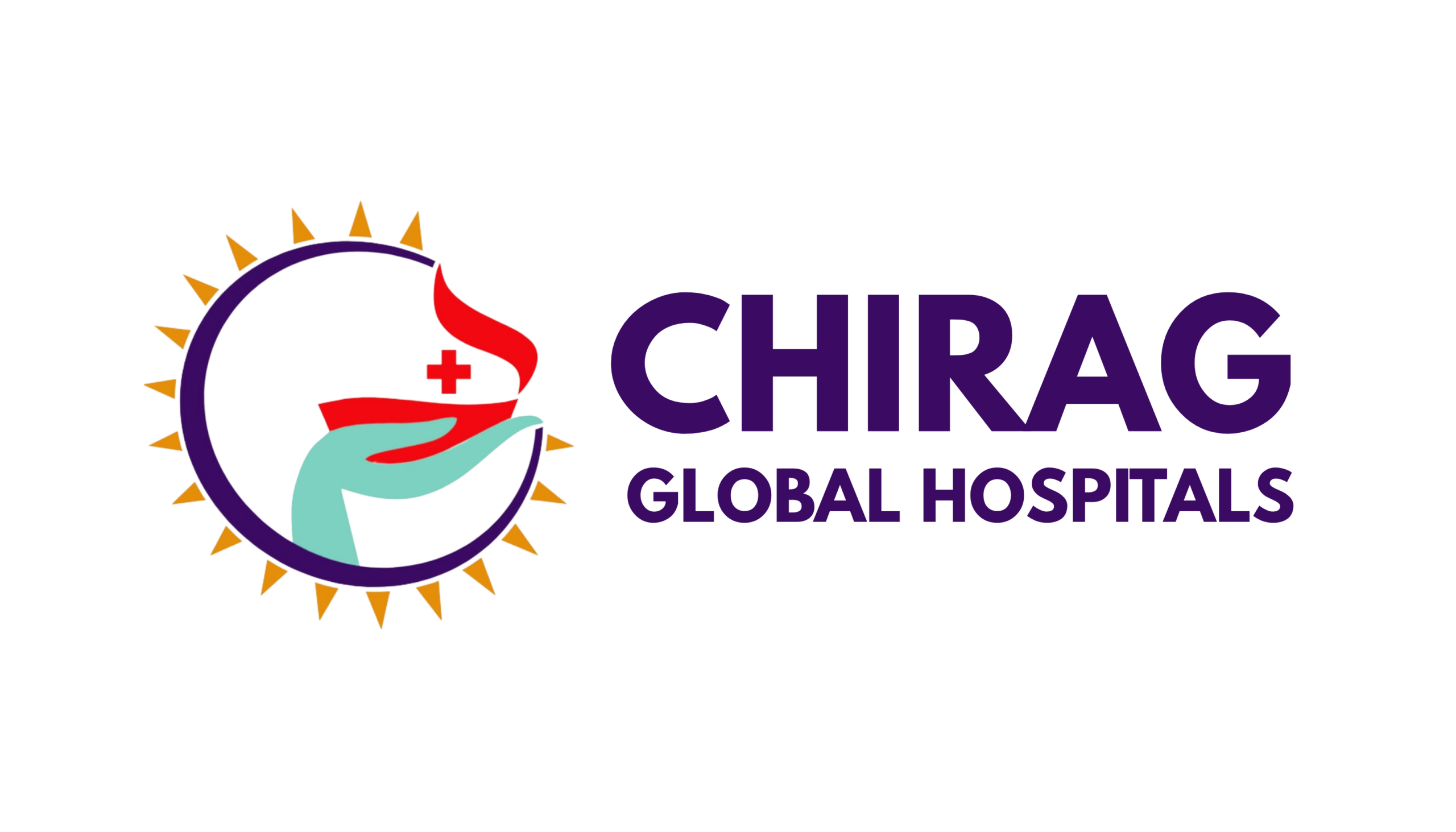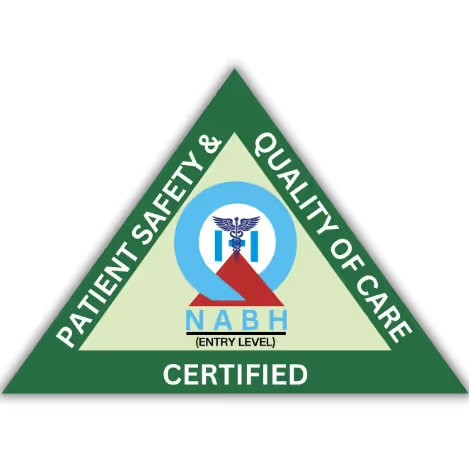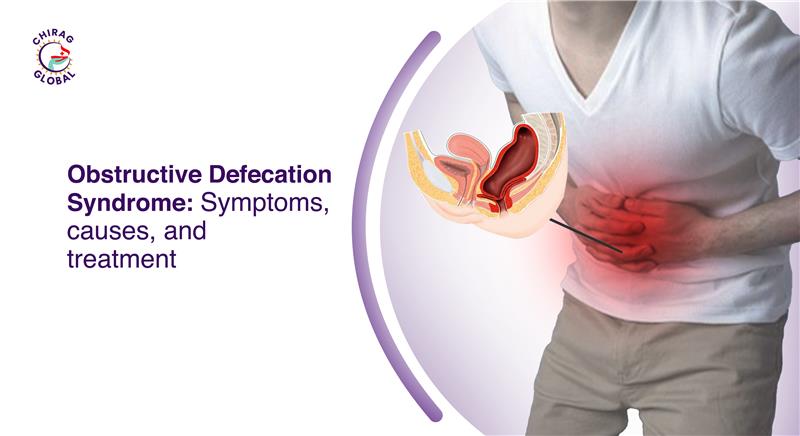By Chirag Global Hospitals

Introduction
Cancer is one of the most concerning health challenges of our time, and among its many types, rectal cancer has gained growing attention due to its rising incidence worldwide. The rectum, which forms the last few inches of the large intestine before the anus, plays a crucial role in waste elimination. When abnormal cell growth occurs in this region, it can develop into rectal cancer.
According to the World Health Organisation (WHO), colorectal cancer (which includes cancers of the colon and rectum) is the third most common cancer globally. Early diagnosis and timely treatment significantly improve survival rates. Unfortunately, many cases are detected late, often because symptoms are overlooked or misunderstood.
In this blog, we will walk you through everything you need to know about rectal cancer, its development, symptoms, diagnosis, treatment, staging, and risk factors. By the end, you’ll have a clearer understanding of how to recognise signs early and why timely medical care is vital.
Learn (What You Need to Know)
What is Rectal Cancer?
Rectal cancer is a form of cancer that begins in the rectum, the final section of the large intestine. It typically develops from polyps, small growths that form on the inner lining of the rectum. Not all polyps turn cancerous, but certain types, like adenomatous polyps, can progress into cancer over time.
Rectal cancer is closely related to colon cancer, but treatment approaches may differ because of the rectum’s location near the anus and surrounding organs.
Key Aspects of Rectal Cancer
- Location: Affects the rectum (last 12 cm of the colon).
- Development: Usually begins as noncancerous polyps.
- Progression: Can invade deeper tissues and spread (metastasize) to other organs.
- Treatment sensitivity: Requires different treatment plans compared to colon cancer due to its anatomical position.
Development of Rectal Cancer
The development of rectal cancer is usually a slow process:
- Polyp formation – Small abnormal growths appear in the rectal lining.
- Dysplasia – Some polyps undergo precancerous changes.
- Carcinoma in situ – Abnormal cells remain confined to the rectal lining.
- Invasive cancer – Cancer spreads beyond the lining into deeper layers, possibly reaching lymph nodes or distant organs.
Lifestyle factors, genetics, and age can accelerate this progression.
Symptoms of Rectal Cancer
Rectal cancer often presents subtle or overlooked symptoms. Being aware of them can aid in early detection.
- Changes in bowel habits (persistent diarrhoea, constipation, or narrow stools)
- Blood in stool (bright red or dark)
- Rectal bleeding
- Abdominal discomfort or cramping
- Unexplained weight loss
- Weakness or fatigue
- Sensation of incomplete evacuation after a bowel movement
Note: These symptoms can also be caused by conditions like haemorrhoids, but persistent signs should always be evaluated by a doctor.
Bleeding should never be ignored. The patient should immediately consult a Proctologist for a proper examination and confirm the diagnosis.
At Chirag Global Hospital, Video Rectoscopy (VRS) is performed as part of the OPD procedure for every new patient. After a digital per rectal examination, a small proctoscope is inserted, and a pen-like camera connected to a phone captures a clear image. These images not only confirm the diagnosis but also help patients understand their condition better. Many cancers have been detected early at our hospital using this simple yet highly effective clinical examination method.
Diagnosis of Rectal Cancer
Diagnosis usually involves a combination of tests:
- Video Rectoscopy (VRS) – A primary method in OPD setup. Unlike colonoscopy, which requires laxative preparation, VRS can be done without any preparation and gives immediate results.
- Colonoscopy – Used to examine the rectum and colon. Polyps can be removed during the procedure.
- Biopsy – Tissue samples confirm if cells are cancerous.
- Imaging tests – CT, MRI, or PET scans to check the spread of cancer.
- Blood tests – Including carcinoembryonic antigen (CEA) to monitor cancer progression.
Staging of Rectal Cancer
Staging helps doctors decide on treatment options and predict outcomes.
- Stage 0 (Carcinoma in situ): Cancer is confined to the innermost lining.
- Stage I: Cancer has grown into the rectal wall but hasn’t spread to lymph nodes.
- Stage II: Tumour extends through the wall into nearby tissues but not lymph nodes.
- Stage III: Cancer spreads to nearby lymph nodes.
- Stage IV: Cancer has spread (metastasized) to distant organs, often the liver or lungs.
Treatment of Rectal Cancer
Treatment depends on the stage, location, and overall health of the patient.
1. Surgery
- Local excision: For early-stage tumours confined to the rectal wall.
- Resection with anastomosis: Removal of part of the rectum and reconnection of the bowel.
- Colostomy: Sometimes needed if reconnection is not possible.
2. Radiation Therapy
- Often used before or after surgery to shrink tumours or reduce recurrence.
3. Chemotherapy
- Drugs that kill cancer cells or prevent their growth.
- Used alongside surgery or for advanced cancer.
4. Targeted Therapy & Immunotherapy
- Newer treatments focus on specific genetic changes or boost the immune system to fight cancer.
At Chirag Global Hospitals, patients receive personalised treatment plans combining modern medical approaches with compassionate care. Additionally, adjuvant Ayurvedic medicines are prescribed for symptomatic relief after chemo or radiotherapy. These medicines help manage side effects such as loss of appetite, gastritis, abdominal bloating, and proctitis (burning sensation in the anal region).
Risk Factors for Rectal Cancer
Several factors can increase the likelihood of rectal cancer:
- Age: Most common after age 50.
- Family history: Having relatives with colorectal cancer or genetic syndromes (e.g., Lynch syndrome).
- Lifestyle: Low-fibre diet, high red meat consumption, sedentary lifestyle.
- Smoking & alcohol: Increases cancer risk significantly.
- Medical conditions: Inflammatory bowel disease (IBD), such as ulcerative colitis or Crohn’s disease.
Method (How to Prevent & Manage Risk)
While not all cases are preventable, steps can reduce risk:
- Regular screening: Colonoscopies from age 45 (or earlier if high risk).
- Healthy diet: High in fruits, vegetables, whole grains, and fiber.
- Stay active: At least 30 minutes of daily exercise.
- Limit alcohol & quit smoking.
- Maintain a healthy weight.
If you have a family history of rectal or colon cancer, genetic counselling and earlier screenings are recommended.
Summary
- Rectal cancer is a serious but treatable condition when detected early.
- Symptoms like rectal bleeding, blood in stool, and changes in bowel habits should never be ignored.
- Diagnosis relies on colonoscopy, biopsy, and imaging tests.
- Treatment involves surgery, chemotherapy, radiation, and modern therapies.
- Prevention includes regular screening, a healthy diet, and lifestyle changes.
Seeking timely medical attention can make all the difference. For expert evaluation and treatment, you can consult the specialists at Chirag Global Hospitals, where advanced care meets patient-focused treatment.
FAQs
1. Is rectal cancer curable?
Yes. When detected in the early stages, rectal cancer is highly treatable and often curable. The survival rate decreases in advanced stages, but treatments can help manage and prolong life.
2. How is rectal cancer found?
Rectal cancer is usually detected through screening tests such as Video Rectoscopy (VRS), colonoscopy, imaging scans, and biopsy of suspicious tissue. VRS is a quick and simple OPD procedure that can detect cancers at an early stage without the need for prior preparation.
3. What is Stage 4 rectal cancer?
Stage 4 indicates that the cancer has spread (metastasized) to distant organs like the liver, lungs, or bones.
4. What are the first signs of rectal cancer?
The earliest signs include rectal bleeding, blood in stool, unexplained changes in bowel habits, and a feeling of incomplete evacuation.





